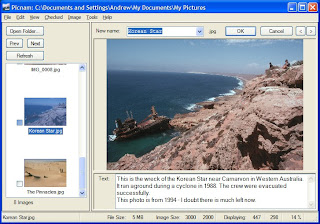
It is not too hard to choose a computer or laptop when you know what you are going to use the computer for. That is the key, knowing yourself, and knowing the use you intend to give the laptop. Here is the email box and comment box; please do leave at least one comment. Let me know that you are reading here? And then there are the tips and warnings at the end.
There are some things that you need in a laptop or computer --that are considered necessities rather than luxuries.
If you shop around at a store, the salesperson there will point you to the computers that he or she wants to sell. So, you are not getting an unbiased opinion of which computer to purchase.
In this article, I give some helpful hints and suggestions to those who are going to choose computers today, this month or next month.
First decide how you will use your computer. Most people use it this way--either for everything or for practically nothing. You decide how much you use your computer.
If you use it for practically nothing, that means you might check email, send email and maybe do a little of the net surfing (shopping, browsing, and checking out the news or weather online). If this is your computer profile, then you need basics and can get by with almost any brand new computer there is on the market today.
Step2
However, if you want to do a little more with your computer. You want to browse, surf, send email. You want to send pictures or scan pictures into your computer from a scanner. Or perhaps you want to put pictures onto your desktop (on your computer) through a cellular phone or through an external camera. Then you need a little bit more than basics. Sometimes you might want to transfer pictures to a disk ( a cd), and or other times you might want to download music to a disk or to your computer. The more and more that you intend to use your computer, the more features you need.
If you want to use your computer for all those activities and tasks and more, and if you want to compose documents with your computer and use other graphic or word-processing programs, then you will need these at the very least:
1. Laptop (preferable but a desktop is acceptable)
2. USB ports (preferably three or four of these, though one might be acceptable--depending on use).
3. CD and DVD-Writer (Now, you can transfer files, music, pictures plus videos right onto a disk. You can take almost everything off your hard-drive and keep it safe on disk. I recommend doing duplicates, just in case. You will always have your important files and pictures that way).
4. You might want an extra or a long-lasting battery for your laptop. If you intend to travel with it, or even use it on the road locally , a lot, then you would want to purchase that long-lasting battery, or that extra battery. Sometimes these can range about two or three hundred dollars depending on the laptop.
(Some batteries last two hours while there are rare few that promise to last five hours. Obviously, if yours lasts five hours, you might not need two batteries).
5. If you live in an area that is stricken with tornados, earthquakes and blackouts on a regular basis, an extra investment in that extra battery might be quite helpful to you--especially if you work from your home computer.
6. Security programs: Most modern, brand-new computers have some security programs built right in. For example, most have "McAffee" or "Norton" with a free three-month trial basis. Personally, I do not like either of these two programs. You can try out an awesome program online--for free, called, "Zone Alarm". This is a very cool security program which actually captures offending ISPs and also keeps logs of everything. There is just something about Zone Alarm. I believe it is quite a helpful program.
Step3
Recommendations are helpful. And, in keeping with that statement of fact, I recommend ACER. Acer is a very cool computer company. I have used their computers for a number of years. I am very satisfied with the company.
I found an advertisement once in a magazine and thought, "I have never heard of that company". But, I decided to take a chance and try it (since it was on sale, anyway). I am so happy that I took the chance and tried Acer.
Probably, other than Apple, I would not choose another company for computers other than Acer.
Compaq is a great computer company also. A number of years ago, I used their customer service and I was completely satisfied with their company.
 Whether you are setting up a home theatre system, using your screen with a computer for business meetings or even in a stadium environment, there are certain things to take into account when purchasing a projection screen which can affect the efficiency of the product as well as the reliability of the product.
Whether you are setting up a home theatre system, using your screen with a computer for business meetings or even in a stadium environment, there are certain things to take into account when purchasing a projection screen which can affect the efficiency of the product as well as the reliability of the product.






